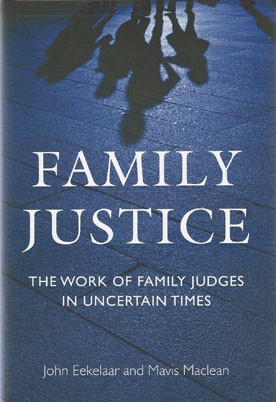We are now closed for the Christmas and New Year period, returning on Monday 5th January 2026. Orders placed during this time will be processed upon our return on 5th January.

This book is about the delivery of family justice in England and Wales, focusing on the work of the family judiciary in the lower courts. The policy context is moving so rapidly that the authors have gone beyond presenting their empirical findings to offer a broader consideration of the nature and role of the family justice system, as these are in danger of being lost amid present reform proposals.
The first four chapters are historical and comparative, examining assumptions about family justice and offering a defence of the role of legal rights in family life, and the importance of good policy-making balancing outcome- and behaviour-based approaches to family justice. Comparative examples from the US and Australia show how new approaches to family justice can be successfully deployed.
The next three chapters are empirical, including a typology of the roles played and tasks addressed by the judges, overturning the commonly held assumption that the central judicial role is adjudication, emphasising the extent to which judges integrate outcome- and behaviour-focused approaches to family justice, and giving a detailed account of the daily work of circuit and district judges and legal advisers.
The conclusion is that there is a trend across jurisdictions, driven by technological innovation and by economic constraints, to reduce the role of courts and lawyers in favour of individual choices based on private or government-funded information sources. While these developments can be beneficial, they also have dangers and limitations. The final chapter argues that despite the move to privatised forms of dispute resolution, family justice still demands a sound judicial structure.